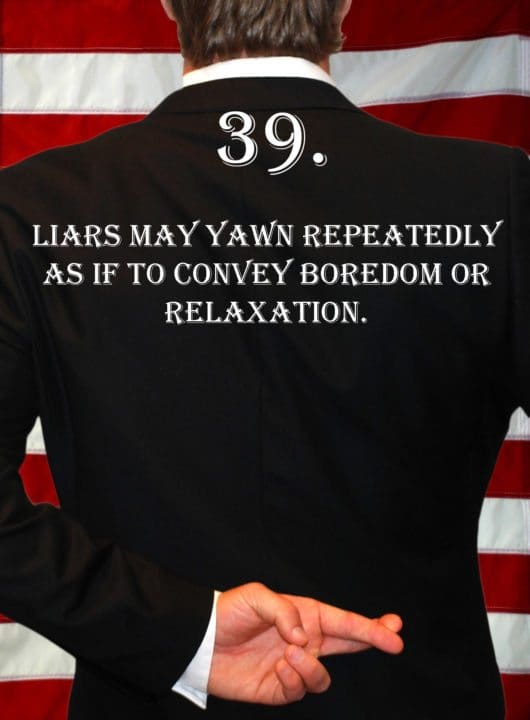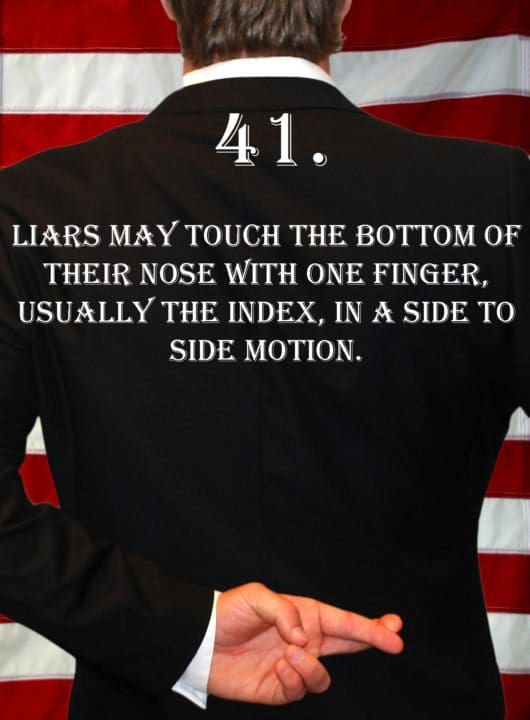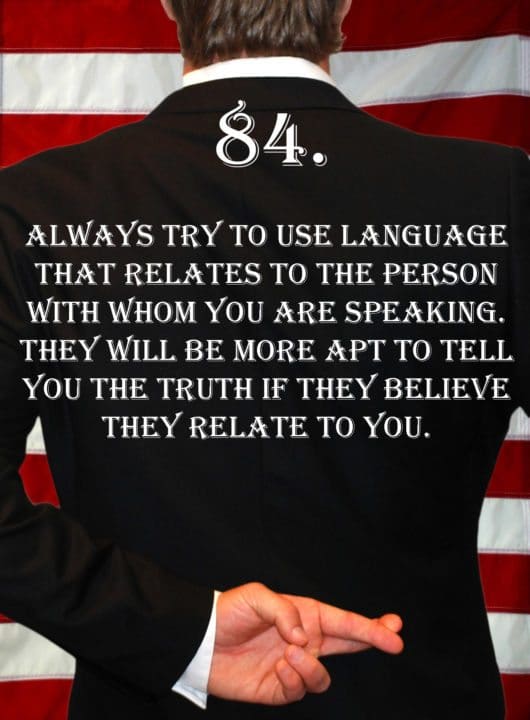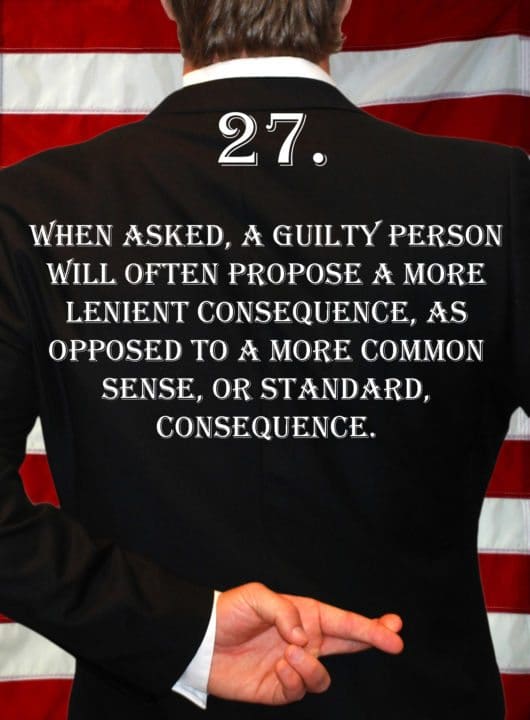
Deception Tip 39:
Liars may yawn repeatedly as if to convey boredom or relaxation.
Listen To The Podcast!
E39 – Liars Yawn – Deception Tips Podcast – Click Here To Subscribe
Podcast Transcript
Hello and welcome to the deception tips podcast where you will learn amazing cues to detect deceit that will help you read people like never before. I’m your host Spencer Coffman, let’s get started.
Welcome to deception tip 39. Remember to continue listening to these podcast episodes, listen to them over and over again, share them with your friends and discuss them with other people.
It is only through repetition that you will continue to learn more about detecting deception and you will understand all of these little signs and know exactly what they mean when they occur on other people.
Last time, we spoke about a deception tip that is something where people who lie are under a tremendous amount of tension and stress. Anytime someone lies, there is a lot of pressure, there’s a lot of stress and tension that goes behind that lie. They are thinking about a number of things such as telling the lie, getting it right, and making sure other people believe them.
Whether or not people are believing them, there is a lot of stress and they’re also trying to get away with something. So, then there’s the tension and stress involved with covering up, let’s call it a crime or whatever it is.
They’re covering up the truth and they’re trying to manipulate that truth to get someone to believe their false truth. That is only a little bit of the tension and stress that can be exhibited during a lie.
Now, this stuff comes out unconsciously, remember the conscious and unconscious are fighting. It’s a battle between one another and the conscious is trying to push that lie outside, the unconscious is trying to push out the truth. Therefore, when liars are under a tremendous amount of tension and stress, the unconscious has that tension and stress leaked into the neck area.
So, this is the tense neck, the veins may protrude, the muscles will be tense, and you may see things going on in the neck region. A couple of things to remember about that is that it may not always be a liar that exhibits that tense neck. It could also be due to different things like their baseline behavior. You need to make sure you have that, so you know whether or not they typically have a tense neck.
Also, the environmental or external factors, may be something around them that’s irritating them or causing them stress and that is why their neck is tensed. So, always remember that no matter what, even with the tense neck, in any deception tip or any time you are speaking with someone or detecting deception or trying to read people in general, you need to look for that baseline behavior.
The baseline behavior is their normal behavior, how they act in normal conversation when the stakes are low, when it’s just casual, you understand what they are and who they are, how they behave and maneuver. Then, when you throw in that tension and stress, the pressure of them lying, to tell the truth, or telling the truth, covering it up, whatever the case may be.
When you increase that pressure, then they will start to behave differently and you can see a difference, a deviation from that baseline behavior, then you will know that something’s up. So, make sure you get that baseline behavior, then you can compare the new behavior with the baseline or their normal behavior to understand what is going on.
Remember that you can never really know what they’re lying about, you just know that they’re lying through their signs of deception. Continue to bring them up, when you see one or you think you see one, circle back to that topic, keep it brought up in conversation and see if you notice more and more signs. If you do, then you can be fairly certain about what topic they are trying to cover up or lie about. Then you can call the monitor to bring it up and keep asking more about that.
Today, we are going to talk about a different sign that is a pretty good one. It’s a very brief sign, yet it can happen repeatedly throughout a conversation. It’s one that is so casual you may not notice it when it occurs, but now that you’re going to talk about it you will start noticing it.
In addition, you may start noticing it on yourself a lot and then you’ll be questioning why it is happening to you and why it is going on with your speech and body language.
But that’s not to be worried about because most of the time it does happen regularly. However, when people lie it can sometimes happen a little bit more frequently.
I’m talking about a yawn, a lot of liars may yawn for boredom or relaxation purposes to lower the stakes or to show the interrogators or the questioners that, “oh yes, I’m very calm and very relaxed. I have nothing to worry about because I’m innocent or I’m not guilty or I’m not lying,” whatever the case may be.
However, yawning is something that happens all the time in normal baseline behavior, normal everyday conversation. For example, I guarantee you, at some point during this podcast, during talking about yawning, I’m going to yawn. In addition, you’ll probably yawn at some point just from talking about it because the yarn is such a powerful psychological thing that even talking about it or seeing it makes it happen, it’s very weird.
So, here it is, deception tip number 39. Liars may yawn repeatedly as if to convey boredom or relaxation. Here it is again, deception tip 39. Liars may yawn repeatedly as if to convey boredom or relaxation.
So, they are trying to convey two things here, any time when someone is lying or when they are being questioned, if they look bored then that means that they’re really not interested in this line of questioning.
Why wouldn’t they be interested? Well, their intention is that if they’re not interested then they must have nothing to do with it because it doesn’t apply to them.
They’re not falsely accused of anything, they’re not being accused of anything, they don’t even care. They don’t want to be there, so that’s why they would convey boredom. Relaxation is something that they would convey to show them that they are calm.
“Hey, no matter what you think I did, I’m not freaked out about it because I have nothing to worry about. I’m very calm, I’m very relaxed, I have nothing to worry about.” So, they show those in order to get people to believe that they are innocent or that they are telling the truth.
Yawn can be a very strange thing in that you can use it on both sides. You can use them as a questionnaire, as an interrogator, to manipulate behavior, or to see how they are acting or reacting to you.
Remember when we spoke about mirroring movements back in episode 35, how sometimes you can do things on your face to get people to copy you. They can copy your behavior and when people mirror movements, generally, they are telling a little bit more of a truth than a lie. Truthful people tend to mirror the head movements of those with whom they converse.
However, liars are more statuesque posed, so yawning can be used in a similar manner where you can yawn and see if they mirror that yawn because that is a natural response. Now, we’re going to continue talking more about yawning and what is going on with it, and how it has effects on behavior and body language coming up after this.
Do you read the reviews on Amazon before making a purchase? Reviews help consumers find products that interest them, the same is true with podcasts. Consider reviewing this podcast to help others learn how to detect deception.
Here we are, we’re talking about yawns and body language when people are lying. This is deception tip number 39, all about how yawning is a conveyor of boredom and relaxation. When people yawn, when they are telling the truth or telling a lie, when they are trying to get away with covering up the truth.
So, liars, yawn repeatedly when they are speaking with someone in order to convey that boredom and that relaxation. They would want to convey this to show the targets that they are uninterested, they have nothing to worry about and that they are completely calm, that it’s very casual. If they convey this then their hope is that the targets will believe their story a little bit more.
They will think this guy doesn’t care, he has no reason to lie to us because he’s very calm and casual and definitely bored with this. He doesn’t even care about what’s going on, why would he lie or why would she lie?
So, that is why those liars attempt to convey that boredom and relaxation by yawning. Then, what is also a little bit interesting with this is that when people yawn other people around them tend to yawn.
When we talked about mirrored movements back in episode 35, when you mirror someone else’s movement, there’s a little bit of a bond or connection that happens. So, if I do some certain behaviors and then you copy my behaviors, you are automatically, unconsciously going to be a little bit more connected to me.
This is displayed when you can get people to do multiple behaviors in a row or even from standing across the room not even talking to them, you can get them to kind of mimic what you’re doing.
There is a connection there, there is an unconscious connection and there’s sort of a bond. So, when you yawn and other people around you yawn, they automatically are going to feel a little bit more connected to you. So, then if you do it again, and then on again there is more and more that can happen in terms of that connection.
So, when liars are yawning repeatedly throughout a conversation to convey that boredom and relaxation, another thing that they’re doing, they may not know that this is what they’re doing, but they’re doing it, nonetheless. If they are getting those targets to yawn or the interrogator to yarn as well, they are developing a rapport with that interrogator.
That interrogator is going to start liking them a little bit more, he’s going to start believing them a little bit more because they have that unconscious connection. Another thing with yawns and this is a study that was done a while ago, I don’t have any statistics or results or anything, but you can look it up, there’re numerous yawn studies out there. This is probably one of the most unanswered questions that people try to answer, is why do other people yawn when someone yawns?
One of the theories proposed was that, well, if I yawn and then you yawn as well, the resulting yawn, so the second yawn is done because that person feels empathy for the first person, so they yawn as well.
This is something that you can take it or leave it but when the first person yawns and the second person yawns, if there is that emotional feeling of empathy there, then that means that if a liar is yawning and then the target is yawning as a result, that target is now unconsciously feeling that empathy or that sympathy for that person.
Not only yawning but also it could be transferred to, “Hey, I’m sitting here, I’m taking time out of my day, you guys have me in handcuffs”, whatever the case may be. Now, there’s a little bit of extra sympathy and it could be transferred from whatever the purposes of the yawn to the current situation of being interrogated. Which in that case, would give those targets a little bit more of a favorable outlook on the liar or the person who’s being interrogated.
So, there are a number of reasons why a liar would convey this boredom by doing intentional fake yawns to get them to reciprocate that behavior and form more of a bond. It’s a manipulation tactic that gets people to like them a little bit more.
Another thing that is cool with yawns is when a liar is yawning or repeatedly yawning to convey that false relaxation or that false sense of security, they’re not only lying about whatever they’re talking about, now they’re lying about their yawn. The yawn is fake, so that’s a fake yawn, which is a lie.
Eventually, there will be real yawns because you know just as well as I do that if you fake a yawn, it’s not long after that you start to yawn for real. It’s that psychological power of a yawn, it’s super powerful, and it is really high.
Go ahead right now and fake a yawn, I’ll give you a couple of seconds. You probably right now are yawning in the middle of me talking because you faked that yawn and it was fake for a while, but then halfway through your fake yawn, a real yawn took over.
Why? Because the effect is super powerful, there is an amazing psychological component with yawns. That is why when you yawn other people yawn as well. It helps them draw closer to each other, it is a manipulation tactic, you are manipulating someone else’s behavior. You’re yawning, you’re getting them to yawn, you are controlling their yawn.
Now, you’re not controlling them, manipulating them, it’s not a mind-reading or robotic thing or something like that, it’s just a normal response. Therefore, it can also be used in this, if you as an interrogator are going to start yawning, you can get ahead of that liar by yawning first. So, if you yawn, the person who’s lying is seeing that you’re calm, maybe you’re bored, maybe you don’t care about whatever this is.
So, now they’re going to get even more frustrated especially if they’re lying. They are already tense, they’re already stressed, now you’re yawning, you’re showing them you don’t even care what they’re saying, they’re going to get very frustrated.
Then, if they yawn in response to you now, they’re going to start developing that connection to you. So then, they’ll tell you the truth because they have that empathy for you or that sympathy for you or whatever the reason is, they’re connected to you.
On the other hand, if they don’t yawn, now they’re not mirroring your movements, they’re not mirroring a movement that everybody mirrors, so now you know that something is really off. It’s just like if they aren’t mirroring your yawn, now you know, hey, normal people mirror a yawn, so the fact that they aren’t means something could be going on.
So, yawns are a very powerful thing to use when you are trying to get to the truth. It is something that you can use as an interrogator and it is something that you need to watch for when you are interrogating someone else. If they start yawning, you need to determine whether it’s just a real yawn or whether they are trying to use it to pull the wool over your eyes.
I want to thank you for listening to the deception tips podcast. Hope that you’ll share it with your friends, subscribe to the feed, check out the deception tips videos and the blog, take a look at my books and tune in next week for a new deception tip.
Video Transcript
Hey guys, my name is Spencer Coffman, thank you for watching the deception tips videos. They’re all about teaching you how to read people and detect deception so that you will be able to tell if someone is lying to you. Now, over the past few times, we’ve been talking about something that is really cool when it comes to body language and lying and deception in general.
We’ve been talking about a behavior that happens on the face that is so highly contagious that other people do it and no matter what, they can’t even help it. Sometimes they try to stifle it, sometimes they let it happen, other times they may just stop talking and it happens in the middle and then other people start doing and pretty soon it’s like a game of it happening all back-and-forth.
In case you haven’t figured it out yet, we are talking about yawning. Yawning is a highly contagious behavior that liars may use to their advantage. The reason they use it to their advantage is because when people yawn, oftentimes someone else yawns and then there’s enough of a pause between that that whatever someone was talking about they may be able to quickly change the topic or forget about it.
So, here it is deception tip number 39. Liars may yawn repeatedly as if to convey boredom or relaxation. So, are you yawning as well? potentially, maybe not, usually it’s better in person but you’ll notice that after I said that tip then I yawned now it’s like, well wait a minute, what was he talking about? We’re talking about three seconds ago now it’s ten seconds ago because I’ve been talking but that pause is enough to disrupt whatever was going on cognitively between the two people and especially if both people yawn.
So, if I was lying and I yawn and then I get you to yawn, now we’ve got two yawns back-to-back. That is enough of a pause, usually about a 5 to 10 second pause that I could quickly change the subject from whatever you were asking me if I don’t want to answer that then you may forget about it, so it’s a tactic that liars can use.
Liars use this if they are really intelligent liars, this is like liars 2.0, they are using these tactics maliciously to get people to ward off suspicion. It’s also used to convey boredom, so it could necessarily mean like they’re trying to lie to you maliciously. It could also be like they’re trying to tell you that hey I am bored with this conversation but I’m too polite to say so to your face, so I’ll just yawn and try to convey boredom or frustration hoping that you’re going to pick up on it and let me leave or let me go.
We’ve talked about this before with orientating their body away towards the exit like they want to get out of here, so things like that are things that you can pay attention to along with yawns. Also, when we spoke about mirroring behaviors, yawns are one of those behaviors that we just can’t help but copy and you can watch if someone tries to stifle it then they usually clench their teeth.
They’re not going to clench their teeth with a big smile like that, they’re going to be a little bit subtler but you’ll get the point, they’re going to put their lips together, clench their teeth and it’s going to be suppressing that yawn. Liars try to yawn repeatedly, repeatedly doesn’t mean one after another after another, it could just mean more than normal. So, eventually you may ask, “Well, did you get enough sleep last night, are you tired? If they say “Oh, yeah” and they have a good story behind it then okay maybe there really are tired.
If they say like, “Oh, yeah, no, I’ve been fine” or “I’ve been sleeping well” then you could be like, “Well, why are you yawning all the time?” Now you know it’s a big red flag, they’re doing it intentionally, it could be covering up for something that could be conveying boredom, they could be trying to lie. Another reason it could be is because when people yawn, they’re very relaxed.
So, when you get home after a long day work, you lay on the couch, flip on the TV, pretty soon you’re yawning, why? You may not be tired, it’s because you’re relaxed, you’re at peace, so they may try to do that to convey relaxation so that you think they’re relaxed. Usually, when people lie, they’re tense, stressed but if they convey relaxation, maybe you won’t be as suspicious.
So, there are a lot of reasons that they could be doing it, the main thing is you pay attention to that and then start watching for patterns and clusters of behaviors. So, you see one, look for others, then if you see others now you know with certainty that there is potentially a lie going on and you can start prodding and poking for that lie.
If this is your first time watching these videos, I’d love to have you subscribe to the channel on YouTube, feel free to comment with any questions as well. Also, if you’d like some more information, we’ve got books, podcasts, blog posts, all available on spencercoffman.com that are dedicated to teaching you exactly what everybody is really saying.
Until next time.






